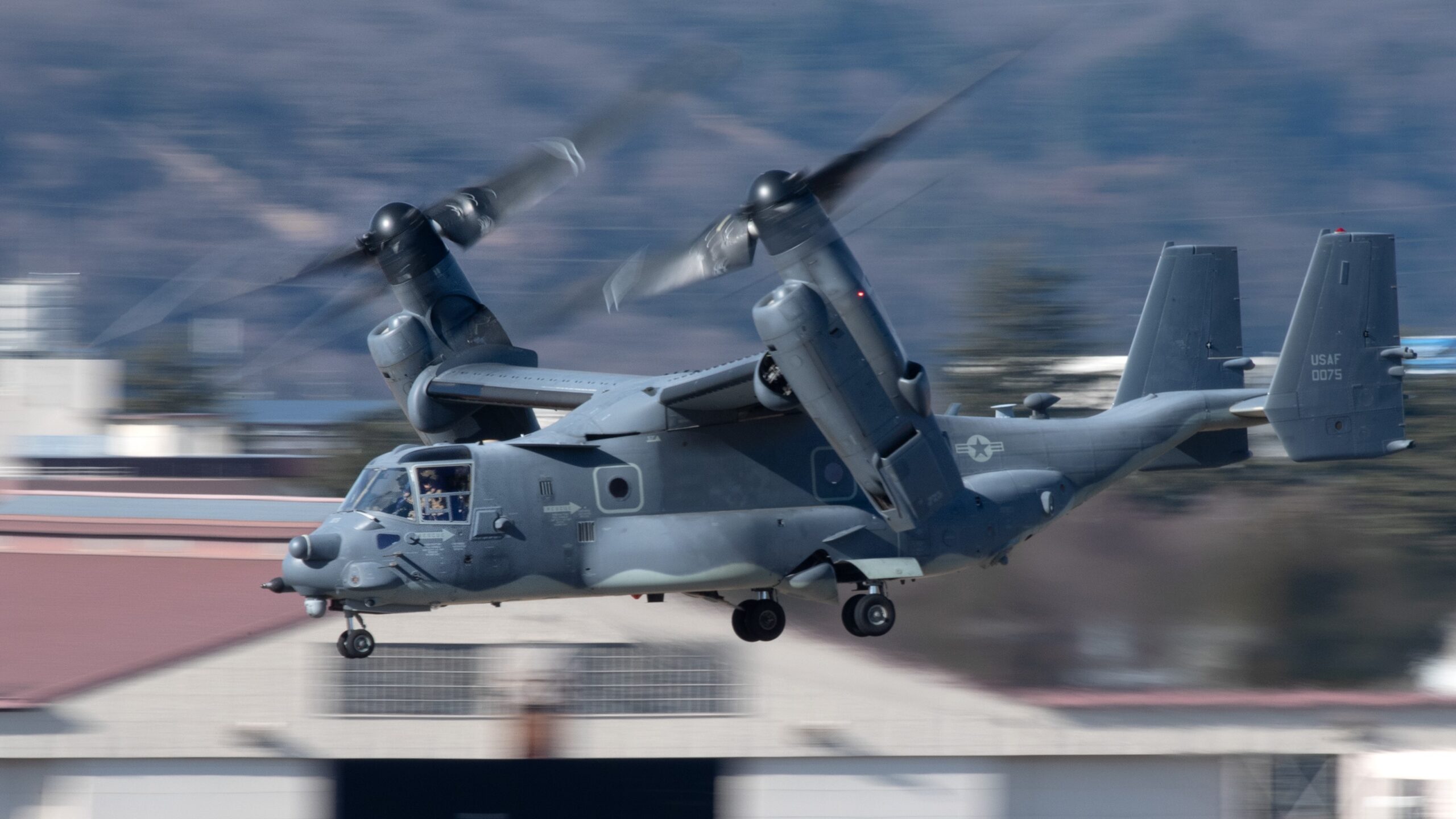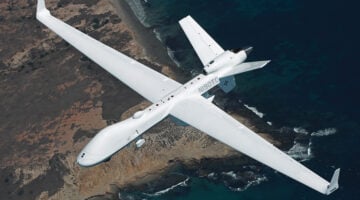
WASHINGTON — Frustrated by multiple fatal incidents in recent years, lawmakers today grilled Pentagon officials about the safety of the DoD’s V-22 Osprey fleet, which recently resumed limited flight operations after a deadly November crash prompted a months-long grounding.
Although the tiltrotor aircraft is back in the skies, it’s restricted to flying within 30 minutes of an airfield. And now, a senior official revealed today it likely won’t resume its full mission profile until mid-2025.
“I will not certify the V-22 to return to unrestricted flight operations until I am satisfied that we have sufficiently addressed the issues that may affect the safety of the aircraft,” Naval Air Systems Command (NAVAIR) Commander Vice Adm. Carl Chebi, who offered the mid-2025 timeline, told the House Oversight Committee’s national security subcomittee.
Asked whether that timeline applies to Air Force Ospreys as well, a spokesperson for Air Force Special Operations Command told Breaking Defense, “We will continue to stay synched with the JPO [Joint Program Office] on all flight restrictions.”
In response to safety concerns, Chebi said officials have implemented a “comprehensive review” of the V-22 encompassing the tiltrotor’s tri-service operators — Air Force, Marine Corps and Navy — that is “designed to make a long-term significant improvement in the safety, availability, and affordability of the V-22.” The review began prior to the November crash and is running in parallel to efforts to return the aircraft to full operations, according to Chebi’s written testimony [PDF].
RELATED: 6 months after fatal V-22 crash, an Air Force Osprey squadron in Japan prepares to fly again
The November crash off Japan that killed eight airmen was just one of several in recent years, though officials have said the mishaps stem from different causes. For example, a fatal March 2022 crash in Norway that killed four Marines was attributed to pilot error. A crash in June 2022 that killed five Marines in California was traced to a mechanical problem known as a hard clutch engagement (HCE) — an issue known for years that later led the Air Force to ground its fleet, though the Navy and Marine Corps did not follow suit at the time.
Three other Marines died when an Osprey crashed in Australia in August 2023, though the root cause of that incident has not been released. The November 2023 crash was caused by “a catastrophic aircraft mechanical failure that had never been seen before in the V-22 fleet,” Chebi testified today.
Officials have been working to mitigate the hard clutch issue by replacing a part known as the input quill assembly, which belongs to the aircraft’s proprotor gearbox where the source of the HCE problem occurs. V-22 program officials are also designing a new clutch that’s expected to be implemented mid-2025, Gary Kurtz, program executive officer for air anti-submarine warfare and special missions programs, testified today. Chebi said there have been no HCE events since mitigation efforts were implemented, though the root cause of the HCE issue has not been formally identified.
Families of victims of the June 2022 crash and others of the separate crash in Australia in August 2023 attended the Osprey hearing today to push officials for greater accountability and to ensure the Osprey fleet is safe. Four of the five families of the June 2022 incident have since filed a lawsuit against the Bell Textron, Boeing and Rolls-Royce industry team that makes the Osprey, alleging the contractors lied about the aircraft’s safety. The companies have not publicly addressed the lawsuit beyond reportedly declining to comment to the media.
Chebi stayed behind after the hearing to answer questions from family members, but after his departure, several said their concerns about the Osprey’s safety record were not satisfied by the officials’ testimonies.
“They don’t have enough information or data. They clearly don’t have answers still on the cause of these mishaps and why the hard clutch engagement is happening and they don’t have a fix for it. So in my mind, if you can’t fix it, you shouldn’t be flying it,” said Alexia Collart, whose son, Marine Corps Cpl. Spencer Collart, was a V-22 crew chief who died in the Australia crash.
Amber Sax, the wife of Marine Corps Capt. John Sax, who died in the California crash, said she asked Chebi about a Marine Corps claim that it could reduce the likelihood of a hard clutch engagement by 99 percent by replacing the input quill assembly in a predetermined timeframe.
“Without a root cause being found, how can you guarantee a 99 percent prevention rate?” said Sax, who is one of the family members involved in the wrongful death lawsuit. “Statistics just are not comforting. I can understand the mathematics behind them but when it’s personal, it goes out the window.”
Rep. Stephen Lynch, a Massachusetts Democrat, implored officials to ground the Osprey until the new clutch is implemented, saying, “I don’t believe this aircraft is safe.”
“If another Osprey goes down, we’re done. This program’s done,” he said. “Ground them now. We’ll bite the bullet for the next year or so until we get this clutch figured out. But we’ve already had too much carnage. We’ve already lost too many good men and women.”
Regarding the November 2023 crash, the military is conducting two investigations that are routine for fatal mishaps: one led by a Safety Investigation Board (SIB), whose findings are kept internal to DoD, and another led by a parallel Accident Investigation Board (AIB) that shares its work with the public. Lawmakers on the committee today were particularly exasperated by the Pentagon’s apparent unwillingness to share SIB reports on Osprey crashes with them.
“I don’t see how we can really adequately address this unless we have a look at those safety investigations,” subcommittee Chairman Glenn Grothman, R-Wisc., said in his closing remarks, who additionally chided officials for being unable to answer a “surprising” amount of questions.
Peter Belk, who is performing the duties of the assistant secretary of defense for readiness, said in an exchange with Grothman that the DoD “remains committed to being transparent in sharing information related to any of these mishaps,” including through command investigations that are shared with Congress “upon request.” However, safety investigations in particular are meant to “maximize” transparency, which requires “safety privilege” for participants, he reasoned.
Addressing families of Osprey crash victims, Grothman said, “I’ll assure you folks that we’re not going to let this matter drop.”

